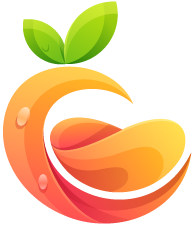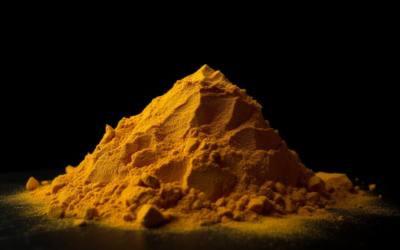Vitamin K is an essential nutrient for our body. It has many benefits, including its role in blood clotting and bone health. It can be found in a variety of food sources and it is important to know the recommended dietary allowance (RDA) for Vitamin K so that you get enough of it. Additionally, deficiency symptoms of Vitamin K should be known as well as the effects of Warfarin on Vitamin K levels and interactions between Vitamin K and other nutrients or medications. In this article, we will answer all your most important questions about Vitamin K so that you have everything you need to know about this essential nutrient!
What are the health benefits of vitamin K?
Vitamin K is an essential nutrient that plays a key role in blood clotting and bone health. It is found naturally in many foods, including leafy green vegetables, broccoli, cabbage, Brussels sprouts, cauliflower, fish liver oil, and some fruits and vegetables. Vitamin K also comes in supplement form.
The recommended dietary allowance (RDA) for vitamin K is 120 micrograms per day for adults over 19 years of age. Deficiency symptoms of vitamin K include excessive bleeding or bruising due to poor blood clotting.
Warfarin is a medication used to prevent blood clots from forming in the body however it can interfere with the body’s ability to absorb vitamin K from food sources. Therefore people taking warfarin should have their vitamin K levels monitored regularly by their doctor or healthcare provider. Additionally, there are interactions between vitamin K and other nutrients or medications which should be discussed with your doctor before taking any supplements containing vitamin K.
Overall, consuming adequate amounts of vitamin K can provide numerous health benefits such as promoting normal blood clotting and maintaining strong bones and teeth. Eating a balanced diet rich in leafy green vegetables and other foods high in this nutrient will help ensure you get enough Vitamin K each day without having to take additional supplements unless recommended by your doctor or healthcare provider.
What is the recommended dosage of vitamin K?
Vitamin K is an essential nutrient that plays a role in many important bodily functions. It is found in a variety of foods and can also be taken as a supplement. Knowing the recommended dosage of vitamin K is important for maintaining optimal health.
The Recommended Dietary Allowance (RDA) for vitamin K depends on age and gender, but generally ranges from 1 to 120 micrograms per day. Vitamin K has several benefits, including its role in blood clotting and bone health. It also helps regulate calcium levels, which may reduce the risk of osteoporosis. Additionally, it may help protect against certain types of cancer and heart disease.
Food sources of vitamin K include leafy green vegetables such as kale, spinach, broccoli, cabbage, Brussels sprouts, and collard greens vegetable oils dairy products eggs fish meats grains fruits such as kiwi fruit and blueberries nuts such as almonds and peanuts and soybeans. People taking warfarin should talk to their doctor about how much vitamin K they should consume because warfarin interacts with vitamin K levels in the body. Other nutrients or medications may also interact with vitamin K so it’s important to discuss any supplements or medications you are taking with your doctor before beginning a new regimen.
If you think you may have a deficiency in vitamin K or if you are considering taking a supplement, it’s best to speak with your healthcare provider first to determine the right dosage for you based on your age, gender, medical history, lifestyle habits, current diet plan etc.. They will be able to provide personalized advice on how much vitamin K is best for your individual needs.
What are the functions of vitamin K in the body?
Vitamin K is an essential nutrient that plays a vital role in many bodily functions. It helps the body absorb calcium, which is important for strong bones and teeth, and it also helps to regulate blood clotting. Without enough vitamin K, the body can become vulnerable to bleeding disorders and bone-related diseases.
The recommended dietary allowance (RDA) for vitamin K is 120 micrograms per day for adults. Good sources of vitamin K include leafy green vegetables such as kale, spinach, and collard greens cruciferous vegetables like broccoli and Brussels sprouts certain fruits such as kiwi dairy products eggs meats fish and some fortified foods. Deficiency symptoms of vitamin K include easy bruising or bleeding from minor cuts or injuries, nosebleeds, heavy menstrual periods, or excessive bleeding during surgery or dental procedures.
Vitamin K plays an important role in blood clotting by helping the body produce proteins called prothrombin and factor VII that are necessary for normal clotting processes. It also helps keep bones healthy by aiding in the absorption of calcium into the bones. Warfarin is a medication used to prevent blood clots from forming that can interact with vitamin K levels in the body. Vitamin K may also interact with other nutrients or medications so it’s important to talk to your doctor before taking any supplements containing this nutrient.
How should vitamin K be taken?
Vitamin K is an essential nutrient for human health, and it plays a role in blood clotting and bone health. It can be found in many foods, including green leafy vegetables, broccoli, cabbage, cauliflower, liver, eggs, cheese and soybeans. Vitamin K also comes in supplement form. Taking the right amount of vitamin K is important to ensure optimal health benefits.
The Recommended Dietary Allowance (RDA) for vitamin K is 120 micrograms per day for adults over 19 years old. This amount may vary depending on age and gender pregnant or breastfeeding women should consult their doctor about their individual needs. Taking too much vitamin K can cause side effects such as nausea or vomiting however, taking too little can lead to deficiency symptoms such as excessive bleeding or bruising.
People who take warfarin (a blood-thinning medication) should talk to their doctor before taking any supplements containing vitamin K since warfarin interacts with this nutrient and affects its levels in the body. Additionally, certain medications or nutrients may interact with vitamin K so it’s important to check with your doctor before starting any new supplements or medications that could affect your levels of this nutrient. By understanding how to take vitamin K properly you can ensure you get all the benefits it has to offer while avoiding potential risks associated with taking too much or too little of this essential nutrient.
What are potential risks of consuming too much vitamin K?
Vitamin K is an essential nutrient that plays a key role in blood clotting and bone health. It is found in many foods, including leafy green vegetables, certain vegetable oils, and some fruits and dairy products. While it is important to get enough vitamin K from your diet, consuming too much can have potential risks.
The Recommended Dietary Allowance (RDA) for vitamin K is 120 micrograms per day for adults over 19 years of age. Consuming more than the RDA may increase the risk of adverse effects such as kidney stones or liver damage. Additionally, taking high doses of vitamin K supplements can interfere with medications like warfarin which are used to thin the blood and prevent clots from forming. High levels of vitamin K can also interact with other nutrients or medications you may be taking, so it’s important to talk to your doctor before increasing your intake of this nutrient.
Finally, deficiency symptoms of vitamin K include easy bruising and bleeding gums due to impaired blood clotting ability. To ensure adequate intake without going overboard on this nutrient, it’s best to focus on eating a balanced diet rich in leafy greens and other sources of vitamin K rather than relying solely on supplements.
What are natural sources for vitamin K?
Vitamin K is an essential nutrient that plays a key role in blood clotting and bone health. It is found naturally in many foods, including leafy green vegetables, broccoli, Brussels sprouts, cabbage, fish oil, and certain vegetable oils. Vitamin K can also be taken as a supplement to help meet the Recommended Dietary Allowance (RDA).
The RDA for vitamin K depends on age and gender. For adults aged 19-70 years old, the RDA is 120 micrograms per day for men and 90 micrograms per day for women. Deficiency symptoms of vitamin K include easy bruising or bleeding gums.
Warfarin is a medication used to treat blood clots by reducing the body’s ability to form them. However, it can also reduce the body’s ability to absorb vitamin K from food sources or supplements. Therefore, it is important to monitor your intake of vitamin K while taking warfarin. Additionally, there are some interactions between vitamin K and other nutrients or medications that should be discussed with your doctor before taking any supplements containing this nutrient.
Frequently Asked Questions
What are the benefits of Vitamin K?
Vitamin K is an essential nutrient that has many benefits for the body. It helps to regulate blood clotting, build strong bones, and prevent heart disease. Vitamin K also helps to protect against certain types of cancer and can help reduce inflammation in the body. Additionally, it plays a role in helping to maintain healthy skin and hair.
What are the sources of Vitamin K?
Vitamin K is found in a variety of foods, including leafy green vegetables, such as kale and spinach certain vegetable oils, such as soybean oil some fruits and vegetables, such as kiwi and avocado dairy products like cheese and yogurt eggs meat fish and fermented foods like sauerkraut.
What are the deficiency symptoms of Vitamin K?
Vitamin K deficiency can cause a range of symptoms, including easy bruising and bleeding, excessive bleeding from cuts or wounds, anemia due to blood loss, and calcification of the arteries.
What is the Recommended Dietary Allowance (RDA) for Vitamin K?
The Recommended Dietary Allowance (RDA) for Vitamin K is 120 micrograms per day for adults. This amount is recommended to ensure adequate nutrition and health.
How does Vitamin K play a role in blood clotting and bone health?
Vitamin K is essential for blood clotting and bone health. It helps the body produce proteins that are needed for clotting, which stops bleeding when we get injured. Vitamin K also helps the body absorb calcium, which is important for strong bones.
How does Warfarin affect Vitamin K levels?
Warfarin reduces the amount of Vitamin K in the body. It works by blocking the action of an enzyme that helps produce Vitamin K, which is important for blood clotting. As a result, Warfarin can reduce the risk of dangerous blood clots forming in your body.
Are there any interactions between Vitamin K and other nutrients or medications?
Yes, there are interactions between Vitamin K and other nutrients or medications. Vitamin K can interact with certain medications, such as anticoagulants, antibiotics, and cholesterol-lowering drugs. It can also interact with other vitamins and minerals, such as calcium and vitamin D. Therefore it is important to talk to your doctor before taking any new supplements or medications.
Conclusion
In conclusion, Vitamin K is an essential nutrient that plays a vital role in many bodily functions. It has numerous benefits, including aiding in blood clotting and bone health. There are various sources of Vitamin K, such as leafy green vegetables and certain oils. Deficiency symptoms include easy bruising and bleeding. The Recommended Dietary Allowance (RDA) for Vitamin K varies depending on age and gender. Warfarin can reduce the body’s ability to absorb Vitamin K from food, while interactions between Vitamin K and other nutrients or medications should be discussed with your doctor or healthcare provider. Knowing about the importance of Vitamin K is key to maintaining good health!


